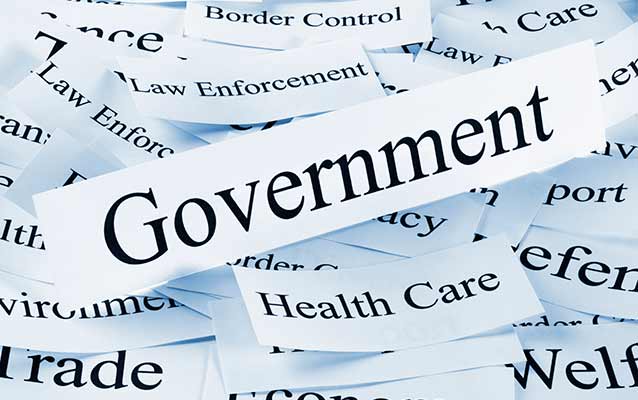Unpacking Political News The first portion of the chapter reviews the impact of journalistic routines on political news-gathering. The second part looks at the role played by organizational forces, a topic that brings us eyeball to eyeball with controversies involving Fox News. The third section explores the ways that an array of economic factors shape news. The final portion describes the complex ways that the larger political system influences news, particularly coverage of recent wars. MEDIA ROUTINES What are media routines? They are defined as “those patterned, routinized, repeated practices and forms that media workers use to do their jobs”. From a professional perspective, routines enable reporters to gain information efficiently, providing tried-and-true methods to determine which information should pass through the informational gates and which should be discarded. There are three key routines: (1) Ethically based and journalistic news values; (2) Reliance on sources; (3) Dependence on informational channels. […]
Contemporary Political Socialization
Chapter 5: Contemporary Political Socialization THEMES IN POLITICAL SOCIALIZATION Political socialization performs a valuable function. It helps a society communicate its political heritage to new generations. We want children to understand the storied history of the United States, both its strengths and shortcomings. We want them to appreciate the importance of freedom, tolerance, and duty to country, as well as the importance of civic engagement. Other countries also convey their political lineage to young members of society, emphasizing distinctive national norms and values. Democratic societies in particular seek to nurture four virtues in citizens: knowledge of the political system; loyalty to democratic principles; adherence to traditions like voting; and identification with citizenship. Two themes weave their way through the socialization of political attitudes: continuity and change. STUDYING POLITICAL SOCIALIZATION You would not find as many children who harbored such uniformly positive attitudes today. On television and the Internet kids are […]
Media and Political Knowledge
Chapter 4: Media and Political Knowledge “A democracy can’t be strong if its citizenship is weak,” observed political scientist William A. Galston (2011). A key requirement for effective citizenship is knowledge. Meaningful democratic decision-making requires that citizens understand basic facts of government and the issues that are at stake in elections. National surveys show that most Americans know key aspects of the U.S. Constitution and civil liberties. Happily, they also know the number of senators from their state. But in a testament to widespread ignorance, just 35 percent know the names of both U.S. senators from their state, only a third can name all three branches of government, and 29 percent believe a person can be tried twice for the same crime. This underscores a time-honored paradox of political communication: There is more information available than ever before, yet citizens’ knowledge levels do not approach normative ideals (e.g., Neuman, 1986). […]
The Study of Political Communication ( review )
Chapter #3 : The Study of Political Communication (Review) The study of political communication is popularly believed to have begun with television, it actually dates back nearly a century. It was Walter Lippmann, the American journalist writing in the 1920s, who eloquently and influentially described the ability of the media to mold the images people carried in their heads about a distant world that was “out of reach, out of sight [and] out of mind.” EARLY HISTORY OF POLITICAL COMMUNICATION SCHOLARSHIP Back to Lippmann in the 1920s. After the war, Lippmann became disillusioned by the ways that Creel had used the powers of persuasion and coercion to influence the mass public. He rejected classic liberal democracy concepts, such as the power of rational thought or the ability of the press to relay accurate information. Instead, he concluded that people were prone to psychologically distort information and engage in stereotyping. “We […]
Political Communication
Chapter 2: Political Communication – Review is the process by which language and symbols, employed by leaders, media, or citizens, exert intended or unintended effects on the political cognitions, attitudes, or behaviors of individuals or on outcomes that bear on the public policy of a nation, state, or community. There are several aspects of the definition. Political communication is a process Political communication calls centrally on words and symbols (A symbol is a form of language in which one entity represents an idea or concept, conveying rich psychological and cultural meaning.) Group of leaders and Influence agents Political communication effects can be intended or unintended. Political communication is that effects occur on a variety of levels. ( Political media exert influence on the micro level, affecting individuals’ thoughts, candidate assessments, feelings, attitudes, and behavior.) CONTEMPORARY POLITICAL COMMUNICATION One view is that elite leaders exert a preeminent impact on opinions and […]
The Panoply of Political Communication
Chapter 1 • The Panoply of Political Communication Classical Direct Democracy Athenian democracy was distinctive, unique in its time. It also has articulated key principles that have guided subsequent democratic theories and underpin contemporary democratic governments. The philosopher Aristotle endorsed this view, arguing that human beings were political animals. But he did not mean that people were political in the sense we sometimes use the term today—networking and conniving to gain advantage over others. Aristotle believed that the good life consisted of participation with others on common tasks and deliberating in public to determine just outcomes for the larger community. Liberal Democratic Theory: Liberal democratic theories evolved in the 17th and 18th centuries as people grew frustrated with the power of absolutist rulers and the many ways that European monarchies stifled individual freedom. Democratic government emerged as a way to protect individuals from oppressive use of political power. Liberal perspectives on democracy emphasize the […]
